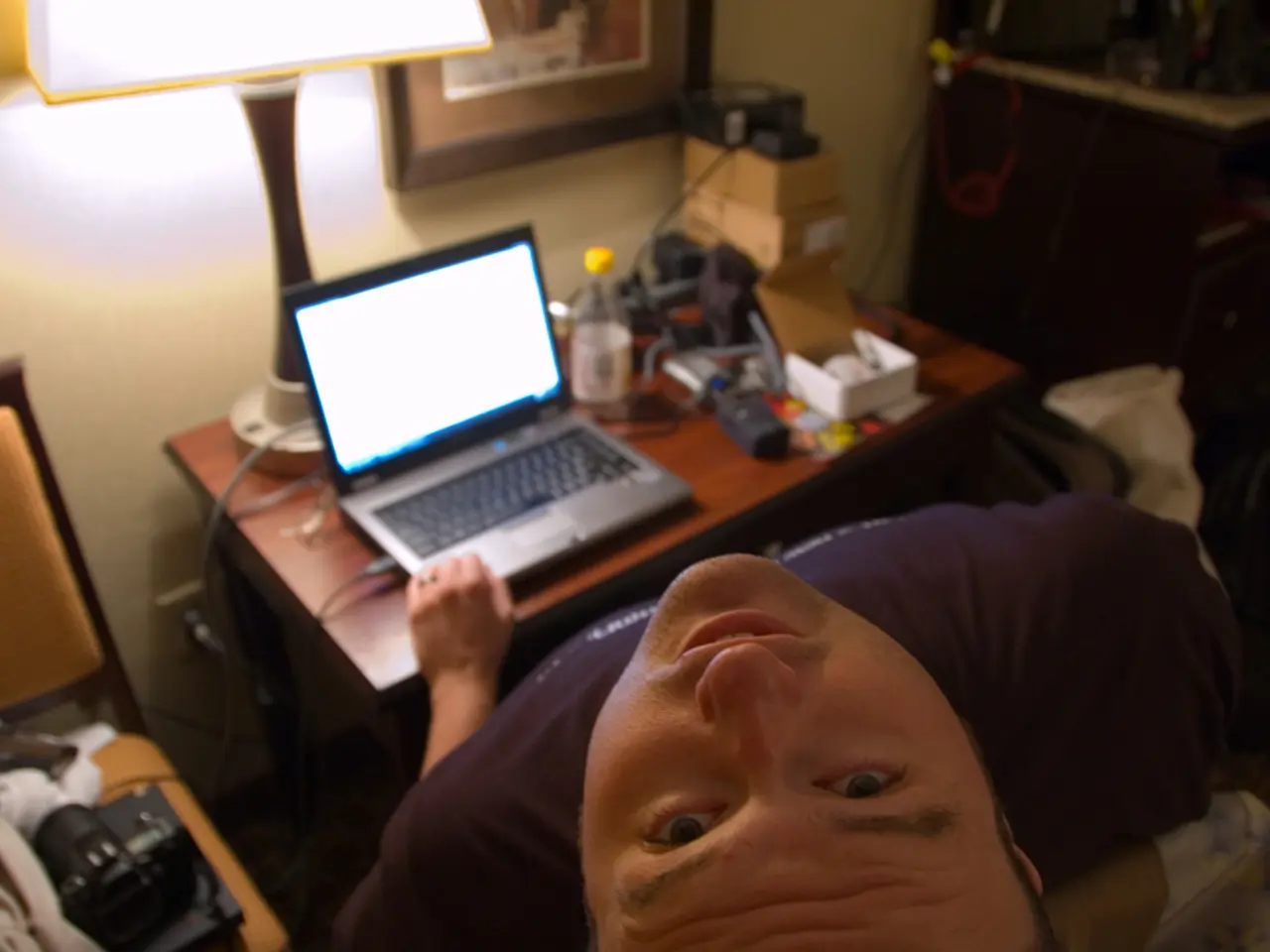Vertigo Relief: Exploring the Epley Maneuver and Other Home Treatments
Vertigo, a sensation of the environment spinning or moving, can be an unsettling and disorienting experience. While some cases may resolve on their own, many people find relief through various home remedies and exercises.
One such remedy is Ginkgo biloba, a Chinese herb known for its ability to resolve vertigo symptoms. Ginkgo biloba extract has been found to work better than a placebo and is as effective as betahistine in managing vertigo[1]. Taking Ginkgo biloba tablets (typically 120 mg daily for 8 to 12 weeks) may ease symptoms of dizziness and nausea by improving blood circulation in the inner ear and brain[1].
Another home remedy is ginger tea, which can help reduce the effects of vertigo. The antiemetic properties of ginger may help alleviate nausea and dizziness associated with vertigo[2].
Acupressure, a method that promotes wellness and relaxation, may help manage vertigo by stimulating pressure points throughout the body. To find the P6 acupressure point, position the hand with the palm facing up, place the middle three fingers of the other hand across the wrist, place the thumb just below the index finger, and press down on the point with the thumb in a circular motion for 2-3 minutes[2].
Beyond these remedies, there are several exercises that can help manage vertigo symptoms. The Brandt-Daroff exercises are designed to break up the calcium crystals in the inner ear that contribute to vertigo. These exercises involve sitting on the edge of the bed, turning the head, and lying down on the side opposite the head turn, holding the position until dizziness subsides, then sitting up and repeating on the other side. Doing these 3-4 times a day for a couple of days can help[3][5].
The Semont Maneuver, performed with guidance, involves rapidly moving from sitting to lying on one side and then quickly switching to the other side without changing head position. This aims to reposition inner ear crystals and alleviate vertigo[3].
For people who experience recurrent episodes of vertigo, a type of physical therapy called vestibular rehabilitation can help. This encourages the central nervous system to compensate for inner ear problems[4].
It is essential to consult a healthcare provider before starting new exercises or supplements to ensure they suit your specific condition[3][5][1]. Dehydration may contribute to vertigo, so staying hydrated is also crucial[6].
In some cases, low levels of vitamin D have been reported in people with vestibular disorders[7]. Therefore, vitamin D supplements may be beneficial for managing vertigo symptoms.
While these remedies and exercises can complement your existing management strategies, it is crucial to remember that everyone's condition is unique. If you are experiencing vertigo, it is advisable to discuss your symptoms with a doctor.
References: [1] https://www.ncbi.nlm.nih.gov/pmc/articles/PMC3290358/ [2] https://www.ncbi.nlm.nih.gov/pmc/articles/PMC5664031/ [3] https://www.ncbi.nlm.nih.gov/books/NBK92752/ [4] https://www.ncbi.nlm.nih.gov/pmc/articles/PMC3103472/ [5] https://www.healthline.com/health/menieres-disease-treatment [6] https://www.nhs.uk/conditions/vertigo-dizziness/causes/ [7] https://www.ncbi.nlm.nih.gov/pmc/articles/PMC3588759/
- Aromatherapy, specifically Ginkgo biloba, can help manage symptoms of vertigo due to its ability to improve blood circulation in the inner ear and brain.
- Ginkgo biloba extract has been found to be more effective than a placebo for vertigo relief, working as well as betahistine.
- Taking 120 mg of Ginkgo biloba tablets daily for 8 to 12 weeks may ease dizziness and nausea associated with vertigo.
- Ginger tea, rich in antiemetic properties, can help reduce the effects of vertigo and alleviate nausea and dizziness.
- Acupressure, particularly the P6 acupressure point, can stimulate wellness, relaxation, and potentially manage vertigo symptoms.
- Brandt-Daroff exercises aim to break up calcium crystals in the inner ear, which contribute to vertigo, and can help manage symptoms.
- The Semont Maneuver can reposition inner ear crystals, alleviating vertigo, but should be performed with guidance.
- Vestibular rehabilitation, a type of physical therapy, can help for people with recurrent vertigo episodes by encouraging the central nervous system to compensate for inner ear problems.
- Consulting a healthcare provider before starting new exercises or supplements is essential to ensure they suit your specific condition.
- Dehydration might contribute to vertigo, so staying hydrated is crucial.
- Low levels of vitamin D have been reported in people with vestibular disorders; therefore, vitamin D supplements may be beneficial for managing vertigo symptoms.
- While these remedies and exercises can complement your existing management strategies, remember that everyone's condition is unique.
- Discuss your vertigo symptoms with a doctor to ensure proper treatment and care.
- Maintaining a healthy digestive health through nutrition and therapies can contribute to overall balance and well-being, potentially reducing the occurrence of vertigo.
- Skin-care practices and therapies can help maintain eye-health, as certain skin conditions can lead to eye infections and complications.
- Hearing loss is a common issue for older adults due to aging and chronic diseases, so taking steps to maintain cardiovascular health can help reduce the risks.
- Mental-health conditions, such as bipolar disorder, can co-exist with vestibular disorders, so seeking help for any associated mental-health concerns is important.
- Chronic respiratory conditions like COPD can affect balance and cause dizziness, so managing these conditions can help control vertigo symptoms.
- Autoimmune disorders can manifest in various ways, including vertigo and other neuro-related symptoms, so it is essential to address these underlying conditions through medical-conditions treatment.
- Incorporating fitness-and-exercise, workplace-wellness programs, weight-management, and parenting practices can promote a healthy lifestyle and potentially reduce the risk of vertigo and other health issues.




